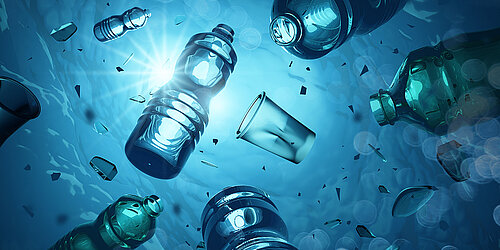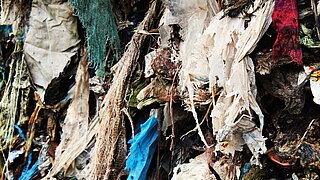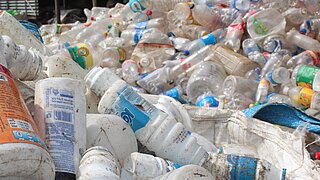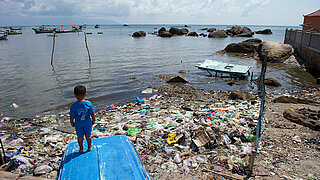The German Federal Ministry for the Environment launched the third funding call of the Grant Programme against Marine Litter on 7 November 2022.
The call for proposals is a two-stage process: First, during the selection stage, interested organisations can submit project outlines. During the second stage, selected outlines are invited to submit a full proposal. Deadline extension: Project outlines can be submitted to Zukunft - Umwelt - Gesellschaft" (ZUG) gGmbH as the responsible project implementer by 5 February 2023 at the latest.
Measures are funded that avoid waste from the outset and, if possible, start at the beginning of the value chain, e.g. in product design. Also eligible is the short-term establishment of functioning waste and cycle management systems for waste that cannot be avoided. Central aspects of the funding are multiplicability, connectivity and the continuity of the selected approaches. The funding programme supports projects on policy advice, capacity building, technology cooperation and investments as well as the implementation of the respective institutional framework. In addition to countries bordering polluted rivers, the focus is on coastal regions and island states.
Project outlines must follow an integrated project approach that includes financial sustainability and the strengthening of governance structures. All projects are expected to have an inclusive approach that ensures social sustainability, gender equality and the empowerment of vulnerable groups. A project design that is aware of colonial continuities and racism and follows contemporary, postcolonial approaches of international cooperation, as well as strong stakeholder participation, is also expected.
Who is eligible?
Application for funding can be submitted by German federal implementing and non-governmental organisations, companies, universities and research institutions, as well as German subsidiaries of international and multilateral organisations and institutions, which are registered in Germany.
They have to enter into cooperation with implementing partners in ODA-eligible countries. Together, they must have a demonstrated expertise in fields that are relevant for the respective project, for example: Project implementation in less economically developed countries and emerging markets, product design and development, supply chain management, waste management and/or circular economy, awareness and behaviour change, wastewater and resource management.
Individuals are not eligible for funding, nor are governments entitled to receive direct funding. In the case of commercial/private enterprises participating in the project, these entities must have an interest in implementation that is not purely economic in nature, and there must be no economic advantage for them from receiving grants during the project period.



